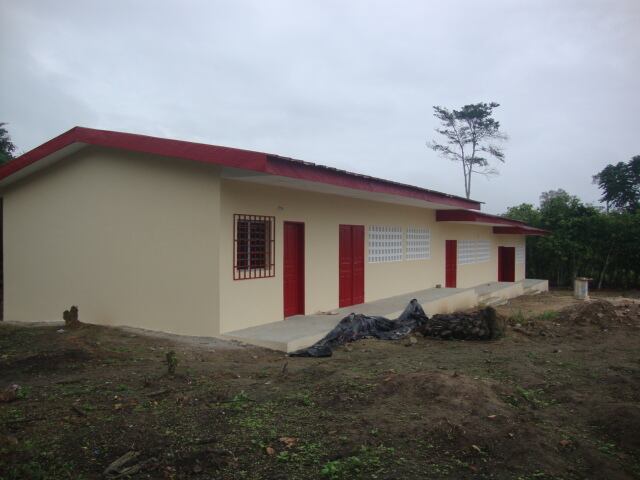The new primary school ‘The Hershey Learn to Grow Abokro School’, built by Barry Callebaut and funded by The Hershey Company, can school 150 children from 24 nearby hamlets and villages. It is a registered public school and will be managed by the Ministry of Education. The building is completed and the school will open for the 2013-14 school year.
In addition to the school there is also a community center and farming training center.
Speaking to ConfectioneryNews, head of corporate social responsibility (CSR) communications at Barry Callebaut Jens Rupp, said the school should work to ensure children in the community do not work on nearby farms.
“Cocoa farming communities are often in very remote areas and there are no schools because the government doesn’t have the funds to build them. Sourcing often happens in areas where children may work on farms because there are no schools to attend.”
“Child labor is a result of poverty and lack of education,” he said.
The school forms part of Barry Callebaut’s quest to find the root causes of child labor and poverty, he said, which in part is this lack of education.
Monitoring child labor is a challenge
Barry Callebaut works with hundreds of cooperatives on the Ivory Coast and therefore indirectly with thousands of farms, Rupp said.
“We very strongly condemn child labor and if we ever saw something we would handle it right away… We are quite confident there is no child labor on the cooperatives we work with but we don’t own the farms – we don’t have any direct control. It’s not like they are our employees, so it is a challenge,” he said.
“When it comes to child labor, monitoring and policing can be done but in the bush it’s very difficult to monitor and they will know way ahead that the auditors are coming,” he added.
These challenges have prompted Barry Callebaut – in collaboration with Hershey – to invest in alternative strategies, like schooling, to discourage child labor.

A sustainable solution to child labor and cocoa farming
Rupp said the primary school formed part of a cycle that should aid the cocoa-growing community as a whole.
“Now, more and more young people want to leave the farms and move to cities to find work – which proves very difficult without an education. We want the local economy to improve to ensure the young people stay in the cocoa-farming regions and ensure the next generation of farming,” he said.
Mike Wege, Hershey’s senior vice president, chief growth and marketing officer, said: “This modern school will make primary education far more accessible for the children of Abokro who today face many challenges.”
Rupp added that Barry Callebaut and Hershey have a common interest to improve the sourcing and sustainability of cocoa.
Hershey’s child labor tie-ups
Last year, The Hershey Company was sued over alleged child labor abuses in West Africa – the Ivory Coast and Ghana. But earlier this month the court case faced a potential meltdown after a Master’s report in the Court of Chancery in Delaware suggested there was insufficient evidence to continue.
Hershey has made commitments to 100% sustainable cocoa by 2020 and to work actively with organizations to fight against child labor, but NGOs have joined forces in criticizing efforts.
The chocolate giant has developed an initiative – CocoaLink - to send farmers information and advice via texts. The program will be launched in the Ivory Coast next month, but that too has received criticism.
